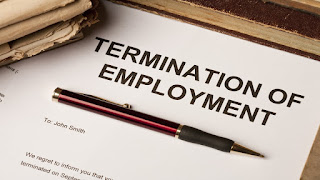Probationary Employment in the Philippines vs Regular Employment
One day, you receive a familiar email - it’s from the company of your dreams, saying you’ve passed their final assessment.
This is definitely a share-worthy email, especially if it’s your first job. On your first day of work, your new employer will ask you to sign a contract. That contract will typically have what is known as a "probationary period".
Philippines probationary employment, according to the Labor Code “shall not exceed six (6) months.” (Article 281). The Civil Code of the Philippines defined the "months" further by saying that (Article 13),
Philippines probationary employment is like a test drive at a car dealership. The Company needs to see if you’re the perfect fit. If not, you can be terminated for just causes, which applies if you fail to meet their standards “made known by the employer to (you) at the time of engagement,” under Article 295 of the LCP.
Even though you’re on a “trial period,” you should still have full Social Security System (SSS) and Philippine Health Insurance System (PhilHealth) coverage from day 1. You need to be ready with all your important documents as the Company will ask for them as part of the pre-employment requirements.
Greetings!
We are pleased to offer you the role of senior copywriter at Company A.
For six months, you will be a probationary employee. Once you meet all our standards, you will then sign a new contract as a regular employee.
We look forward to working with you at Company A!
Thank you.
This is definitely a share-worthy email, especially if it’s your first job. On your first day of work, your new employer will ask you to sign a contract. That contract will typically have what is known as a "probationary period".
Philippines probationary employment, according to the Labor Code “shall not exceed six (6) months.” (Article 281). The Civil Code of the Philippines defined the "months" further by saying that (Article 13),
When the laws speak of years, months, days or nights, it shall be understood that years are of three hundred sixty-five days each; months, of thirty days; days, of twenty-four hours; and nights from sunset to sunrise.
xxx
In computing a period, the first day shall be excluded, and the last day included.
Head's up!
There are actually only five (5) types of employment in the Philippines:
- Regular Employment
- Casual Employment
- Fixed-Term Employment
- Seasonal Employment
- Project-Based Employment
So where does probationary employment fall? In the Philippines, probationary employment is a misnomer as it is actually just a period under the regular type of employment.
Philippines Probationary Employment: Maintaining Security of TenurePhilippines probationary employment is like a test drive at a car dealership. The Company needs to see if you’re the perfect fit. If not, you can be terminated for just causes, which applies if you fail to meet their standards “made known by the employer to (you) at the time of engagement,” under Article 295 of the LCP.
Even though you’re on a “trial period,” you should still have full Social Security System (SSS) and Philippine Health Insurance System (PhilHealth) coverage from day 1. You need to be ready with all your important documents as the Company will ask for them as part of the pre-employment requirements.
During your probationary period, you need to make sure that you follow the company's rules and regulations. Keep in mind, though, that, just because your are a probationary employee does not mean that you do not have security in tenure. In fact, pag may ginawa kang violation of the Code of Conduct, the company is still required to adhere to due process and the twin-notice rule.
Regular Employment is Less Than Six Months Away
If you’re really good at your job, you can become a regular employee in no time. The general practice is that you get notified about your regularization in advance. If, for some reason, you were deemed not suitable for the position, you should be informed about it on or before the end of your probationary employment. Kahit huling araw na yan, it is still within the 180 days. If they allowed you to work the day after the end of your probationary period, then you will be considered as a regular employee.
Regular Employment is Less Than Six Months Away
If you’re really good at your job, you can become a regular employee in no time. The general practice is that you get notified about your regularization in advance. If, for some reason, you were deemed not suitable for the position, you should be informed about it on or before the end of your probationary employment. Kahit huling araw na yan, it is still within the 180 days. If they allowed you to work the day after the end of your probationary period, then you will be considered as a regular employee.
Final Note
Philippines probationary employment is all about documentation - from the job offer to the employment contract to the regularization (on non-regularization). If you are an HR, these documents will help keep you safe from any labor case. At the same time, it helps you manage the career growth of the employees better.
Philippines probationary employment is all about documentation - from the job offer to the employment contract to the regularization (on non-regularization). If you are an HR, these documents will help keep you safe from any labor case. At the same time, it helps you manage the career growth of the employees better.
Learn more about the basics of the labor code and handling labor cases when you attend UpRush's Mastery of Philippine Labor Relations and Labor Standards.




Comments
Post a Comment